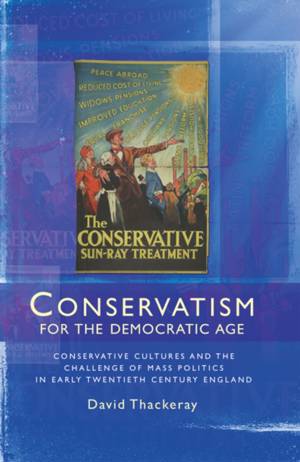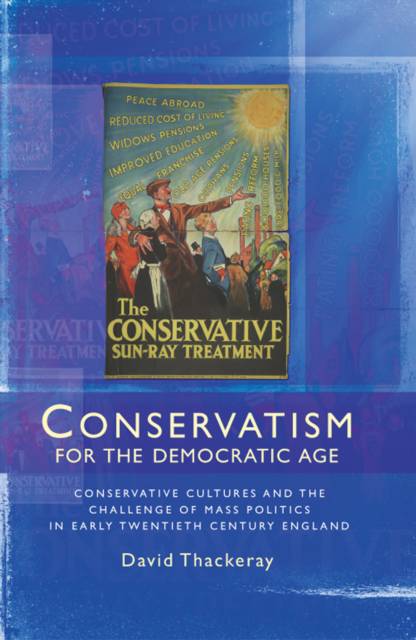
- Retrait gratuit dans votre magasin Club
- 7.000.000 titres dans notre catalogue
- Payer en toute sécurité
- Toujours un magasin près de chez vous
- Retrait gratuit dans votre magasin Club
- 7.000.0000 titres dans notre catalogue
- Payer en toute sécurité
- Toujours un magasin près de chez vous
Conservatism for the Democratic Age
Conservative Cultures and the Challenge of Mass Politics in Early Twentieth Century England
David Thackeray
Livre relié | Anglais
146,45 €
+ 292 points
Description
This book offers a new interpretation of the Conservative party's revival and adaptation to democratic politics in the early twentieth century. We cannot appreciate the Conservatives' unique success in British politics without exploring the dramatic cultural transformation which occurred within the party during the early decades of the century. This was a seminal period in which key features of the modern Conservative party emerged: a mass women's organisation, a focus on addressing the voter as a consumer, targeted electioneering strategies, and the use of modern media to speak to a mass audience.
This book provides the first substantial attempt to assess the Conservatives' adaptation to democracy across the early twentieth century from a cultural perspective and will appeal to academics and students with an interest in the history of political communication, gender and class in modern Britain.Spécifications
Parties prenantes
- Auteur(s) :
- Editeur:
Contenu
- Nombre de pages :
- 232
- Langue:
- Anglais
Caractéristiques
- EAN:
- 9780719087615
- Date de parution :
- 31-05-13
- Format:
- Livre relié
- Format numérique:
- Genaaid
- Dimensions :
- 157 mm x 234 mm
- Poids :
- 498 g

Les avis
Nous publions uniquement les avis qui respectent les conditions requises. Consultez nos conditions pour les avis.






